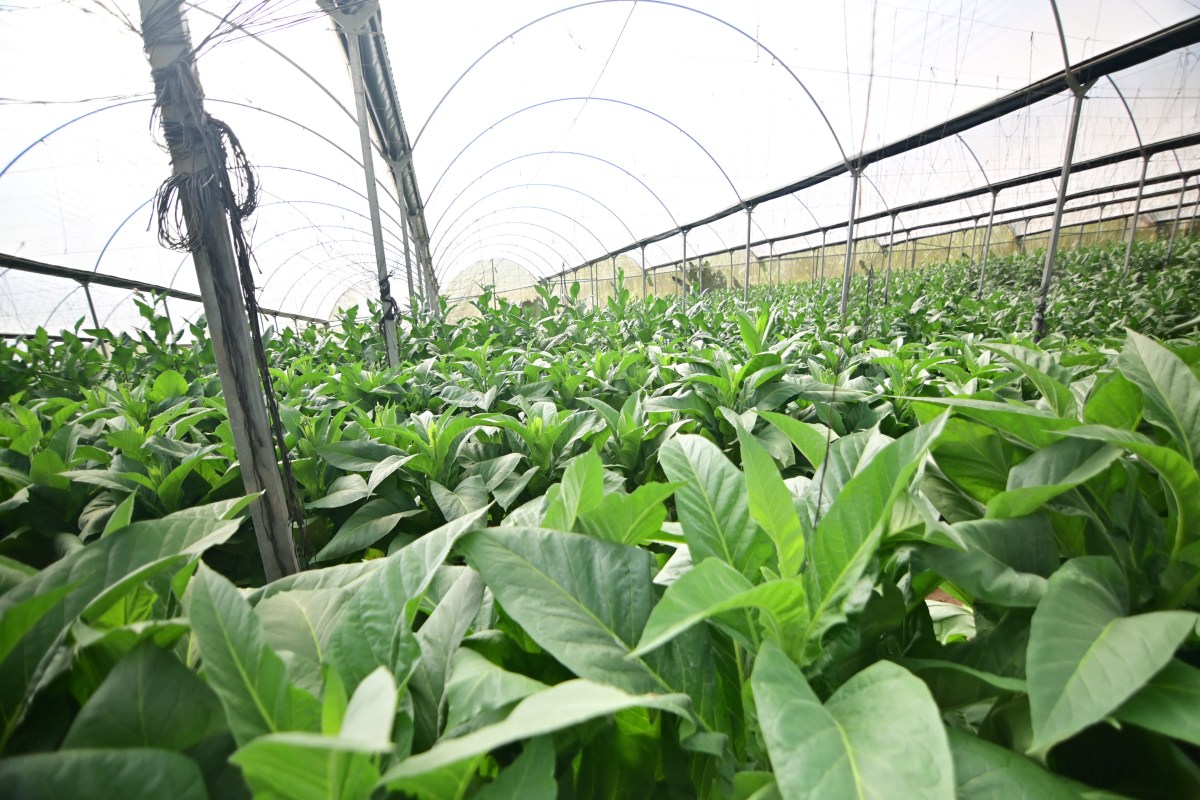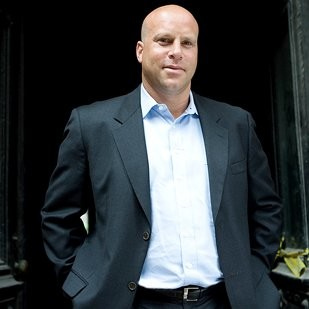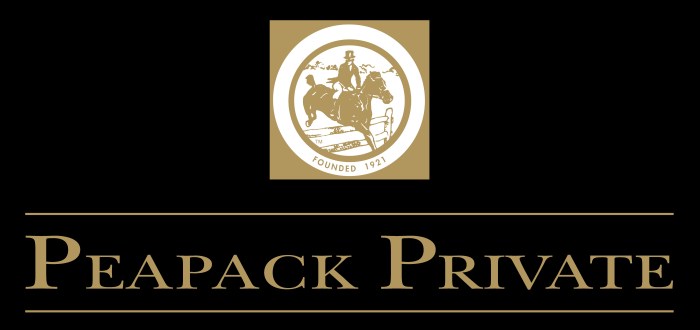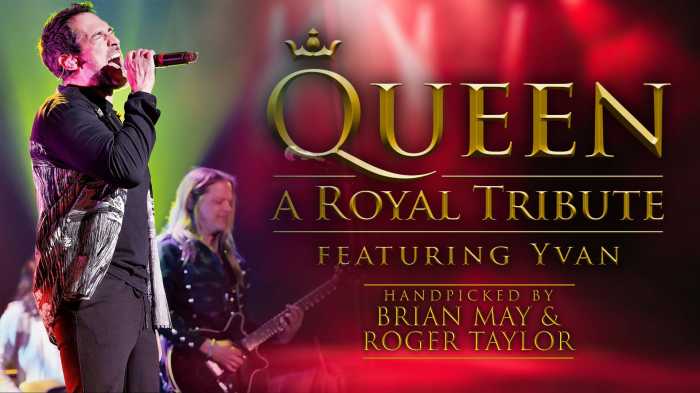When the pandemic disrupted global markets and forced businesses to rethink their futures, most farmers tried to ride out the storm. Jacob Yfrach, an Israeli-born vegetable grower with farms in Mexico, the Dominican Republic and a distribution business in Brooklyn, decided to take an unexpected turn from cucumbers into cigars.
“I never smoked before, not cigarettes, not cigars, nothing,” Yfrach said. “But I had my investments in the Dominican Republic and I didn’t want to let them or my workers go to waste. So I told my wife, I need to find another way forward.”
That decision launched Natura Cigars, a boutique cigar company that has quickly drawn attention in an industry dominated by century-old names. What makes Natura unusual is its origin story — and where its tobacco is grown on Yfrach Farms in Constanza, a region 4,500 feet above sea level in the Dominican Republic.
“It’s important to recognize that we are the only company to grow the majority of our tobacco at an elevation of 4,500 feet above sea level,” Jonathan Osmun, director of business development here in Huntington, said. “That’s never been done in the history of tobacco farming.”
The high elevation creates cooler nights and unique growing conditions. Traditional cigar wisdom insists tobacco cannot thrive in cold climates, but Yfrach was determined to experiment.
“Everybody told me I was going to lose money and at first, they were right,” he said. “We lost almost 95 percent of our first crop. But then we took what was left and experts told me, ‘This is something very different. Don’t give up.’”
The leftover leaves were rolled into small cigars and sampled by veteran cigar makers. Their reaction convinced Yfrach that he had stumbled on something remarkable.
“They told me, you can put these leaves between hundreds of others and you will still taste the difference,” he said. “That’s when I realized we had something special.”
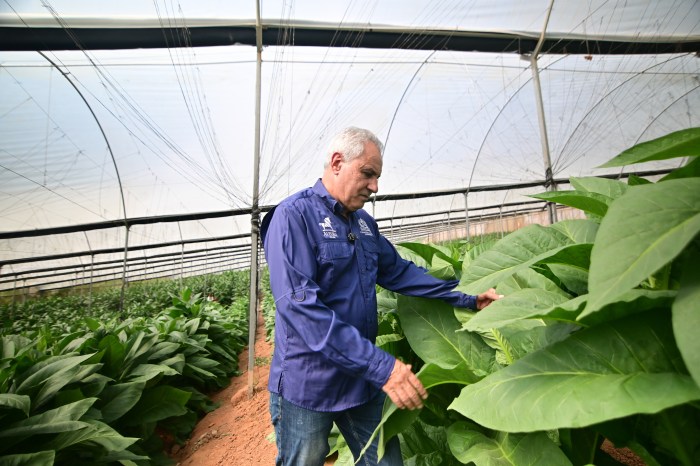
The uniqueness comes from both climate and process. Natura’s tobacco takes three to four times longer to grow than tobacco cultivated at lower elevations.
“Our longer growing, curing and fermentation cycles produce a different type of leaf,” Osmun said. “That’s what gives us a different flavor and texture.”
Even after harvest, the curing and fermentation cycles extend well beyond the industry standard.
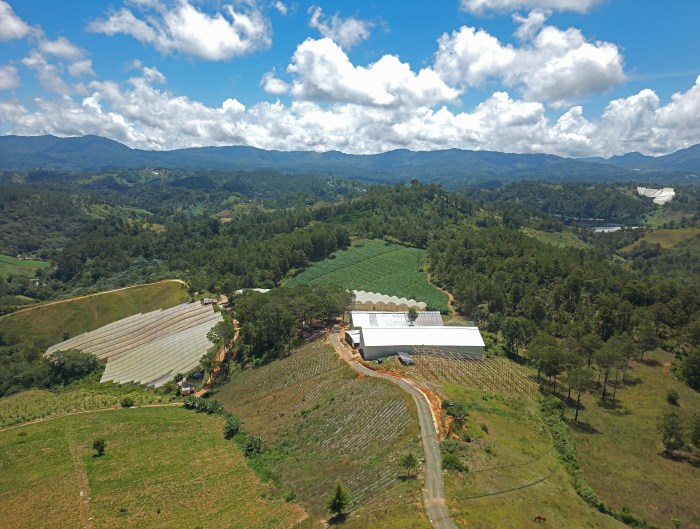
“Our fermentation takes at least a year and a half,” Yfrach explained. “It’s slow and steady, like sous vide cooking. The low temperature keeps all the essential oils inside the leaf. The result is tobacco that is much more oily and aromatic, which makes for a smoother, more enjoyable cigar.”
Natura’s debut at the Premium Cigar Association (PCA) trade show drew immediate praise from aficionados. The cigars were described as complex yet clean, with a lingering smoothness unusual even among high-end brands.
“We’re a tiny company compared to the giants,” Yfrach said. “But people told us our cigar was one of the best they smoked at the show and that’s what gave me the motivation to keep going.”
The company’s flagship line, Altura, is made entirely from leaves grown on Yfrach’s farm. Natura has since expanded to 22 varieties, some blended with international tobaccos but all incorporating leaves from Constanza. Distribution is focused on the East Coast, with cigar lounges in New York, Connecticut, Philadelphia, Miami and North Carolina carrying the brand.
“Our first harvest produced just 7,000 cigars and we sold almost everything,” Yfrach said. “The second harvest, we had about 30,000 and the demand was still greater than what we could supply. That tells me people appreciate what we’re doing.”
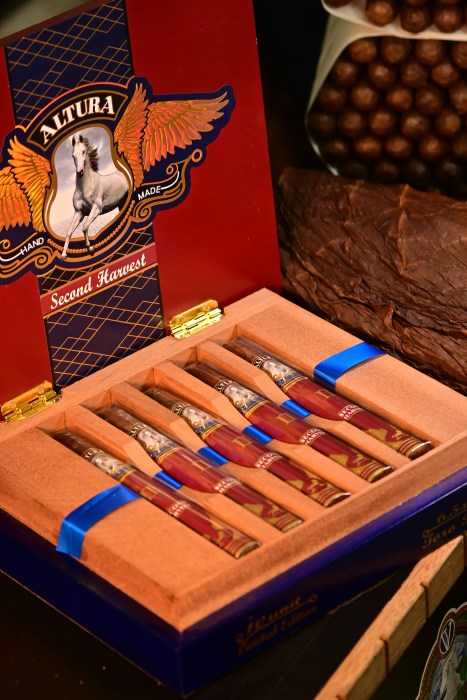
For Yfrach, who studied soil and water physics and spent decades in agriculture, Natura is both a passion project and a scientific challenge. He applies the same precision farming techniques he uses in vegetable production to tobacco, measuring water, light and soil conditions by computer to maximize quality.
“I treat my tobacco like I treat my cucumbers,” he said with a laugh. “We grow everything in greenhouses, monitor every drop of irrigation and that’s something very few people in the cigar world are doing.”
Looking ahead, Yfrach plans to scale up carefully while preserving what makes Natura unique. “My goal is to increase production year by year, but always keep the quality,” he said. “Every season we lose less because we’re learning which varieties adapt best to the cold. Eventually, I want all of our cigars to be fully from our farm.”
Despite being a newcomer, Yfrach says he feels embraced by the industry. Natura has already exhibited at international shows in Germany and the United States, earning recognition in a competitive field.
“I think what drives me is that we are truly doing something nobody has done before,” he said. “No one has ever grown premium cigar tobacco at 4,500 feet above sea level. That’s our identity and that’s what sets us apart.”
For a man who once thought he would never smoke, the shift is still surprising. But Yfrach says his journey reflects resilience and innovation.
“Farming is always risky,” he said. “My father told me, if you don’t know how to lose money, don’t be a farmer. But if you’re willing to take that risk, sometimes you discover something amazing. For me, Natura Cigars is that discovery.”
Find Natura cigars at the following local retailers and cigar lounges.
- Gold Coast Cigar (2460 Larkfield Rd., East Northport)
- Gold Coast Cigar II (146 Main St., Northport)
- Unique Tobacco & Cigar Lounge (12 School St., Glen Cove)
- Tobacco Road Premium Cigars (424 Rockaway Tpke., Cedarhurst)
- Tobacco Road Cigar & Smoke Shop (315 Rockaway Tpke., Lawrence)
- South Shore Cigar Club (344 North Windsor Ave., Brightwaters)
- Harry’s Habana Hut (214-09 41st Ave., Bayside)
- Conquistador Cigar Parlor (2417 Coney Island Ave., Brooklyn)




